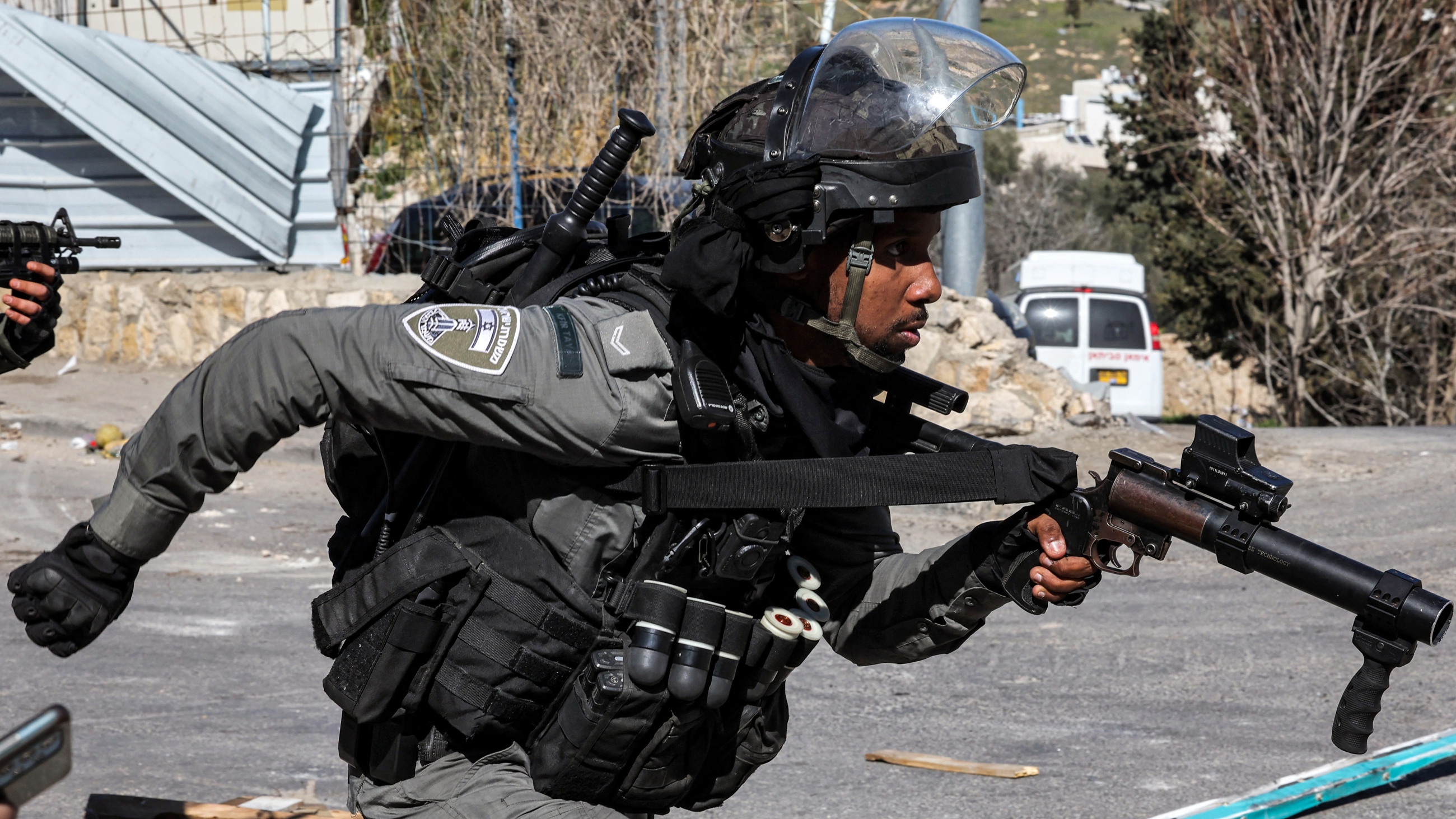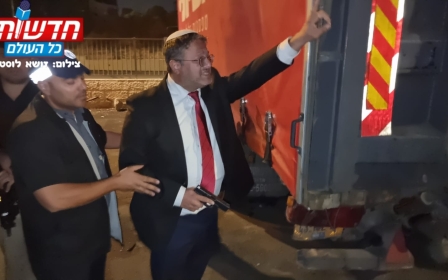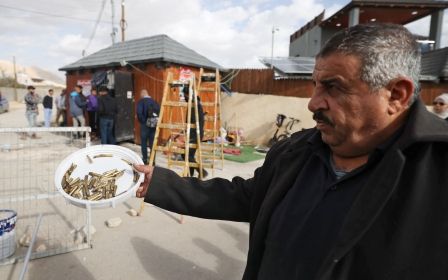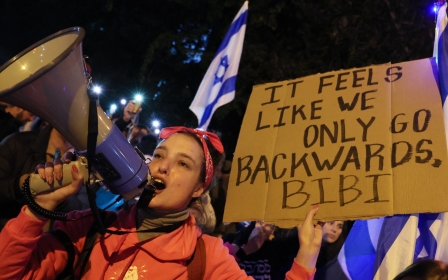Jerusalem: Palestinians declare civil disobedience over Israeli crackdown

Palestinians in occupied East Jerusalem declared a general strike and civil disobedience on Sunday to protest against the growing Israeli crackdown in the city.
Young protesters burnt car tyres and set up barricades overnight at entrances to different neighbourhoods, including Shufat, Anata, Jabal al-Mukabber, Issawiya and al-Ram town.
The civil disobedience action includes not going to work in Israeli workplaces and refusing to pay taxes to the Israeli-run municipality and other state agencies.
Palestinian national and Islamic forces said the protests are in response to a series of punitive measures imposed on residents in the city last week by Israel's far-right National Security Minister Itamar Ben-Gvir.
Over the past week, the crackdown involved demolishing at least seven buildings, arresting 100 people, setting up dozens of roadblocks and checkpoints, and confiscating money and assets from former and current political prisoners, among other measures.
Israeli prison authorities, which are part of Ben-Gvir's remit as national security minister, have also begun imposing harsher conditions against Palestinian prisoners, such as closing the canteens, cutting hot water, and removing kettles and gas hobs used to heat food.
The crackdown was launched following three deadly car-ramming and stabbing attacks earlier this month that left four Israelis killed.
Strike organisers said in a statement on Saturday that Palestinians, especially in Shufat, have been subjected to "retaliatory measures, abuse, torture, humiliation and daily oppression" since the attacks.
Israeli police on Sunday raided some areas in the city, including Issawiya and Silwan, to remove the road barricades, leading to confrontations with protesters.
Ben-Gvir had said in response to the civil disobedience call that "we will show a firm hand and will not tolerate offenders".
'Collective harassment'
Israeli media reported last week that senior security officials asked Prime Minister Benjamin Netanyahu to end the crackdown or risk a "broad flare-up".
The military chief of staff, the director of the internal intelligence agency Shin Bet, and the police commissioner urged Netanyahu to speak with Ben-Gvir to halt his measures.
Shin Bet director Ronen Bar, who normally reports to the prime minister, separately made a rare call to Ben-Gvir and warned him that he was "creating a feeling of collective harassment" in East Jerusalem and "agitating" the city.
Tensions in the region have been growing amid increasing Israeli violence against Palestinians in the occupied West Bank and East Jerusalem since last year.
Israeli forces and settlers have killed 49 Palestinians since the start of January at a rate of more than one fatality per day.
Palestinians have killed 10 Israelis in the same period.
Last year, at least 220 Palestinians were killed during Israeli attacks while 30 Israelis were killed by Palestinians.
The 2022 Palestinian death toll in the West Bank was the highest since 2005.
The US Central Intelligence Agency Director William Burns warned earlier this month that current tensions bear an "unhappy resemblance" to the Second Intifada.
He added that the CIA is working with Israeli and Palestinian security services to prevent "explosions of violence", but admitted that it's "going to be a big challenge".
Middle East Eye propose une couverture et une analyse indépendantes et incomparables du Moyen-Orient, de l’Afrique du Nord et d’autres régions du monde. Pour en savoir plus sur la reprise de ce contenu et les frais qui s’appliquent, veuillez remplir ce formulaire [en anglais]. Pour en savoir plus sur MEE, cliquez ici [en anglais].





